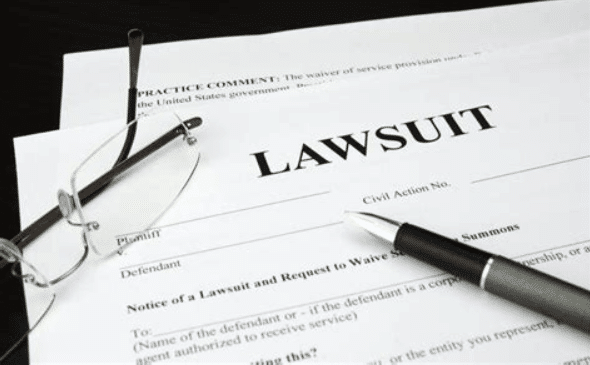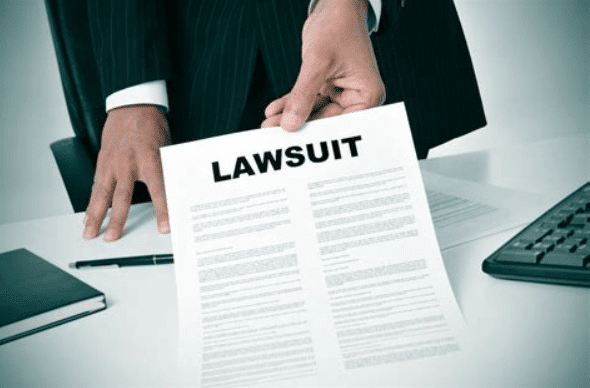Find your Tennessee court records online for Supreme Court cases. For trial cases, you may have to contact your court clerk to check the status of your case or pay a visit to the courthouse to retrieve copies of the court records.
Search your Tennessee court records online for Supreme Court cases. For trial cases, you may have to contact your court clerk to check the status of your case or pay a visit to the courthouse to retrieve copies of the court records.
You can look up any public court case in Tennessee online. An “open court” case is one whose records are not confidential. Aside from accessing the documents filed in the case, you may also attend the proceedings if you want to, even when you are not a party to the case.
A few files are, however, grouped as private. You would have to be a party to the case to see such files at the clerk of court’s office. A juvenile case, for example, is not public.
However, anyone can access most debt collection lawsuits, bankruptcies, and probate cases. You don’t have to reside in Tennessee to see these documents. They are available to anyone countrywide.
There are several ways to look up a court case. We will look at those shortly, but first, let’s learn about Tennessee’s court structure.
Sued for debt in Tennessee? Use ZumaZip Settle to settle the debt for good.
Understand Tennessee’s civil court system
In order to find your case information online or in person, it’s important to understand how the civil courts are structured in Tennessee. When you know what courts have jurisdiction over certain types of cases, it will be easier for you to narrow down the court to which your case is assigned. In Tennessee, there are four levels of courts that deal with civil cases:
- Supreme Court: Tennessee’s court of last resort is the Supreme Court. The five judges accept civil and criminal appeals from the lower courts. They can decide on cases filed at lower appellate courts when there’s a need for a fast decision. Although the 5-bench judges may allow attorneys to present their arguments, there are no witnesses, testimonies, or juries. Appeals go to the 6th circuit of the US federal judiciary.
- Court of Appeals: The General Assembly in Tennessee created the Court of Appeals in 1925. It hears civil appeal cases from the trial courts and some state boards or commissions.
- Circuit Court/Chancery Court: These courts hear civil cases that are appealed from the General Sessions court. The 95 counties in Tennessee are divided into 31 judicial districts. Each district has Circuit and Chancery Courts.
- General Sessions Court: Civil cases heard by the General Sessions Courts are restricted to specific monetary limits and types of actions, which vary from county to county. Generally, cases that involve $25,000 or less are heard by the General Sessions Court.
So, if you’ve been sued for a debt you owe, it’s very likely that your case will be assigned to the General Sessions Court in your county. If not, it’s most likely in the Circuit or Chancery Court.
Ask the court clerk to check the status of your case
At the moment, Tennessee does not have a statewide court case search tool where you can check the status of your civil case online. But that doesn’t there is no way for you to check your case status.
Instead of looking online, try going to the courthouse in person or calling the court clerk to check on your case.
You can find your court clerk’s number on Tennessee’s Judicial Branch website. Go to the menu on the left side of the screen, click on the type of court in which your case is filed, then click on “Clerks” from the drop-down menu. From there, you should be able to find clerk contact information for your court.
Use the Tennessee Public Case History search tool to look up appellate cases
The Tennessee Court Case History search is a free-to-use tool. The records contain all cases in the Supreme Court, Appeals Courts, and Criminal Appeals Court filed after September 1, 2006. Records are updated at the end of each business day.
Using this tool, you can find the case status and procedural history, but not for civil cases from the Circuit Court, Chancery Court, or General Sessions Court.
To find your case, you need some information regarding the matter. It can be;
- Case/docket number
- The names of the parties
- The style of the case, or
- Business or organization name
Find a lawsuit using the docket number
The docket number is the number used to track a case. It is unique to every court case and appears on every document relating to the case once the number is assigned. For example, a lawsuit can have sequence number M2021-078921-COA-R3-CV.
To find that case using the docket number:
- Go to Case Search
- Select case number
- Enter 78921
- Click “Search”
The system will produce all cases with that number listed as the appeal number. You can quickly scroll down to find your lawsuit.
Use the names of parties in the court case
If you are party to the lawsuit, use your name to sift through the files. You can also find other cases by using the names of those involved in the case.
If, for example, Crazy Debt Collector is suing you (Mark Harris):
- Go to Public Case history
- Select “Party Name”
- Enter “Mark Harris”
- Click Search
The system will return all cases with Mark Harris as a party to the lawsuit. Using both names narrows down the search. If you enter just one, the results may be too numerous to display, or you may have to search through many cases to find yours.
To search by the name of the business suing you, select Business/Organization and click “Search.”
Search lawsuit by case style in Tennessee
If you are a defendant in the court case, you likely have the name of the case. Different courts may have different case styles. The simplest can be something like Harris v Crazy Debt Collector.
To find such a lawsuit:
- Go to Tennessee court history
- Select “Case Style”
- Enter the case style name, for example; Harris v Crazy Debt Collector
- Click “Search”
Searching by style quickly narrows down the search because you use the names of both parties.
Searching for civil court cases in the Tennessee trial courts
The case history tool discussed above only gives access to appellate cases. Debt collection cases are civil cases. However, if your debt collection lawsuit is still in the trial phase, you may need to search by county using your county’s court website.
You can use this Tennessee court directory to find your court online and call the court clerk for more information.
Respond to a debt lawsuit in Tennessee
If you find yourself facing a debt collection lawsuit in Tennessee, ZumaZip offers expedited assistance to prepare your response within minutes. The crucial initial step towards securing a favorable outcome in your debt collection lawsuit is to promptly respond with a written Answer. In Tennessee, individuals have a statutory period of 21 days to respond before risking default judgment. It’s imperative to note that defaulting may result in adverse consequences, such as potential wage garnishment or the imposition of property liens by the debt collector.
What is ZumaZip?
ZumaZip is a convenient solution designed to streamline your response to a debt collection lawsuit. Here’s a breakdown of what you can expect when you use ZumaZip:
Firstly, you’ll access our user-friendly web application, which guides you through the process step by step. You’ll be prompted to answer a series of questions related to your specific situation. Once you’ve completed the questionnaire, you have the option to either print out the finalized forms and mail them to the appropriate courts yourself, or you can opt to utilize ZumaZip’s services to file them on your behalf. Additionally, if you choose this option, an attorney will review your document for added peace of mind.
If you’re seeking guidance on how to effectively respond to a debt collection lawsuit, ZumaZip can provide the assistance you need. Feel free to explore our FAQs for more information on what ZumaZip has to offer.
What if I haven’t been sued yet?
If you’ve only received a collections notice, but not a lawsuit, the best way to respond is with a Debt Validation Letter. When a debt collector contacts you in any way, whether it’s by phone or mail, you can respond by formally requesting a debt validation with a Debt Validation Letter . This letter notifies the collector that you dispute the debt and forces them to provide proof you owe the debt. They can’t call you or continue collecting until they provide validation of the debt. This flowchart shows how you can use a Debt Validation Letter to win.
Get started with a Debt Validation Letter here.
How to Answer a Summons for debt collection in all 50 states
Here’s a list of guides on how to respond to a debt collection lawsuit in each state:
- Alabama
- Alaska
- Arizona
- Arkansas
- California
- Colorado
- Connecticut
- Delaware
- Florida
- Georgia
- Hawaii
- Idaho
- Illinois
- Indiana
- Iowa
- Kansas
- Kentucky
- Louisiana
- Maine
- Maryland
- Massachusetts
- Michigan
- Minnesota
- Mississippi
- Missouri
- Montana
- Nebraska
- Nevada
- New Hampshire
- New Jersey
- New Mexico
- New York
- North Carolina
- North Dakota
- Ohio
- Oklahoma
- Oregon
- Pennsylvania
- Rhode Island
- South Carolina
- South Dakota
- Tennessee
- Texas
- Utah
- Vermont; Vermont (Small Claims court)
- Virginia
- Washington
- West Virginia
- Wisconsin
- Wyoming
Guides on how to beat every debt collector
Hey there! Facing off against a debt collector can feel like a daunting challenge, but fear not! We’re here to help you navigate through it all with our handy guides designed to assist you in beating every debt collector you encounter. Whether you’re facing a new lawsuit or dealing with a persistent collector, we’ve got your back. Stay positive, stay informed, and let’s tackle this together!
- Absolute Resolutions Investments LLC
- Accredited Collection Services
- Alliance One
- Amcol Clmbia
- American Recovery Service
- Asset Acceptance LLC
- Asset Recovery Solutions
- Associated Credit Services
- Autovest LLC
- Cach LLC
- Cavalry SPV I LLC
- Cerastes LLC
- Colinfobur
- Covington Credit
- Crown Asset Management
- CTC Debt Collector
- Cypress Financial Recoveries
- Delanor Kemper & Associates
- Eagle Loan of Ohio
- Educap
- Estate Information Services
- FIA Card Services
- Forster & Garbus
- Freshview Solutions
- Fulton Friedman & Gullace LLP
- Harvest Credit Management
- Howard Lee Schiff
- Hudson & Keyse LLC
- Integras Capital Recovery LLC
- Javitch Block
- Jefferson Capital Systems LLC
- LVNV Funding
- Mannbracken
- Mariner Finance
- Medicredit
- Michael J Adams PC
- Michael J Scott
- Midland Funding LLC
- Mullooly, Jeffrey, Rooney & Flynn
- Mountain Land Collections
- MRS Associates
- National Collegiate Trust
- Nationstar Foreclosure
- Northstar Capital Acquisition
- NCEP LLC
- NRC Collection Agency
- OneMain Financial
- Palisades Collection LLC
- Pallida LLC
- Paragon Revenue Group
- Pinnacle Collections Agency
- PMAB LLC
- Portfolio Recovery Associates
- Provest Law
- PYOD LLC
- Reunion Student Loan Finance Corporation
- Revenue Group
- Regents and Associates
- RSIEH
- Salander Enterprises LLC
- Second Round Sub LLC
- Security Credit Services
- Sherman Financial Group
- Suttell and Hammer
- T-Mobile
- Transworld Systems
- Tulsa Teachers Credit Union
- UCB Collection
- Velo Law Office
- Velocity Investments
- Waypoint Resource Group
- Weinberg and Associates
- Wolpoff & Abramson
Settle your medical debt
Having a health challenge is stressful, but dealing medical debt on top of it is overwhelming. Here are some resources on how to manage medical debt.
- Am I Responsible for My Spouse’s Medical Debt?
- Do I Need a Lawyer for Medical Bills?
- Do I Need a Lawyer to Fight Medical Bill Debt?
- Does Bankruptcy Clear Medical Debt?
- How Much Do Collection Agencies Pay for Medical Debt?
- How to Find Medical Debt Forgiveness Programs
- Is There a Statute of Limitations on Medical Bills?
- Medical Debt Statute of Limitations by State
- Summoned to Court for Medical Bills — What Do I Do?
- Summoned to Court for Medical Bills? What to Do Next
Stop calls from Debt Collectors
Do you keep getting calls from an unknown number, only to realize that it’s a debt collector on the other line? If you’ve been called by any of the following numbers, chances are you have collectors coming after you, and we’ll tell you how to stop them.
- 800-390-7584
- 800-289-8004
- 800-955-6600
- 877-366-0169
- 877-591-0747
- 800-278-2420
- 800-604-0064
- 800-846-6406
- 877-317-0948
- 888-899-4332
- 888-912-7925
- 202-367-9070
- 502-267-7522
Other wage garnishment resources
- Bank Account Garnishment and Liens in Texas
- Can I Stop Wage Garnishment?
- Can My Wife’s Bank Account Be Garnished for My Debt?
- Can Payday Loans Garnish Your Wages?
- Can pensions be garnished?
- Can Private Disability Payments Be Garnished?
- Can Social Security Disability Be Garnished?
- Can They Garnish Your Wages for Credit Card Debt?
- Can You Stop a Garnishment Once It Starts?
- Guide to Garnishment Limits by State
- How Can I Stop Wage Garnishments Immediately?
- How Long Before a Creditor Can Garnish Wages?
- How Long Does It Take to Get Garnished Wages Back?
- How to Fight a Wage Garnishment
- How to Prevent Wage Garnishment
- How to Stop a Garnishment
- How to Stop Social Security Wage Garnishment
- How to Stop Wage Garnishment — Everything You Need to Know
- New York Garnishment Laws – Overview
- Ohio Garnishment Laws — What They Say
- Wage Garnishment Lawyer
- What Is Wage Garnishment?
Guides on Arbitration
If the thought of going to court stresses you out, you’re not alone. Many Americans who are sued for credit card debt utilize a Motion to Compel Arbitration to push their case out of court and into arbitration.
Below are some resources on how to use an arbitration clause to your advantage and win a debt lawsuit.
- How Arbitration Works
- How to Find an Arbitration Clause in Your Credit Agreement
- How to Make a Motion to Compel Arbitration
- How to Make a Motion to Compel Arbitration in Florida
- How to Make a Motion to Compel Arbitration Without an Attorney
- How Credit Card Arbitration Works
- Motion to Compel Arbitration in California
- Sample Motion to Compel Arbitration
Federal Debt Collection Laws Can Protect You
Knowing your rights makes it easier to stand up for your rights. Below, we’ve compiled all our articles on federal debt collection laws that protect you from unfair practices.
- 15 USC 1692 Explained
- Does the Fair Credit Reporting Act Work in Florida?
- FDCPA Violations List
- How to File an FDCPA Complaint Against Your Debt Collector (Ultimate Guide)
- How to Make a Fair Debt Collection Practices Act Demand Letter
- How to Submit a Transunion Dispute
- How to Submit an Equifax Dispute
- How to Submit an Experian Dispute
- What Debt Collectors Cannot Do — FDCPA Explained
- What Does Account Information Disputed by Consumer Meets FCRA Requirements Mean?
- What does “meets FCRA requirements” mean?
- What does FCRA stand for?
- What is the Consumer Credit Protection Act
Resolve Your Debt with Your Creditor
Some creditors, banks, and lenders have an internal collections department. If they come after you for a debt, ZumaZip can still help you respond and resolve the debt. Here’s a list of guides on how to resolve debt with different creditors.
- American Express; American Express – Debt Collection
- Bank of America
- Barclay
- Best Buy Credit Card
- Capital One
- Chase
- Credit One Bank
- Old Navy Credit Card
- PayPal Synchrony Card
- Regional Finance
- Retailers National Bank
- Reunion Student Loan Finance Corporation
- SYNCB/PPEXTR
- Synchrony Bank
- Synchrony Walmart Card
- Target National Bank
- Webbank
- Wells Fargo
- Can I Pay My Original Creditor Instead of a Debt Collection Agency?
- Can I Settle a Debt with the Original Creditor?
Check the Status of Your Court Case
Don’t have time to go to your local courthouse to check the status of your case? We’ve created a guide on how to check the status of your case in every state, complete with online search tools and court directories.
- Alabama Court Case Search—Find Your Lawsuit
- Alaska Court Case Search — Find Your Lawsuit
- Arizona Court Case Search – Find Your Lawsuit
- Arkansas Court Case Search — Find Your Lawsuit
- California Court Case Search- Find Your Lawsuit
- Colorado Court Case Search — Find Your Lawsuit
- Connecticut Case Lookup — Find Your Court Case
- Delaware Court Case Search — Find Your Lawsuit
- Florida Court Case Search — Find Your Lawsuit
- Georgia Court Case Search — Find Your Lawsuit
- Hawaii Court Case Search — Find Your Lawsuit
- Idaho Court Case Search – Find Your Lawsuit
- Illinois Court Case Search — Find Your Lawsuit
- Indiana Court Case Search — Find Your Lawsuit
- Iowa Court Case Search — Find Your Lawsuit
- Kansas Court Case Search — Find Your Lawsuit
- Kentucky Court Case Search — Find Your Lawsuit
- Louisiana Court Case Search — Find Your Lawsuit
- Maine Court Case Search — Find Your Lawsuit
- Maryland Court Case Search — Find Your Lawsuit
- Massachusetts Court Case Search — Find Your Lawsuit
- Michigan Court Case Search — Find Your Lawsuit
- Minnesota Court Case Search — Find Your Lawsuit
- Mississippi Court Case Search — Find Your Lawsuit
- Missouri Court Case Search — Find Your Lawsuit
- Montana Court Case Search — Find Your Lawsuit
- Nebraska Court Case Search — Find Your Lawsuit
- Nevada Court Case Search — Find Your Lawsuit
- New Hampshire Court Case Search — Find Your Lawsuit
- New Jersey Court Case Search—Find Your Lawsuit
- New Mexico Court Case Search – Find Your Lawsuit
- New York Case Search — Find Your Lawsuit
- North Carolina Court Case Search — Find Your Lawsuit
- North Dakota Court Case Search — Find Your Lawsuit
- Ohio Court Case Search — Find Your Lawsuit
- Oklahoma Court Case Search — Find Your Lawsuit
- Oregon Court Case Search — Find Your Lawsuit
- Pennsylvania Court Case Search — Find Your Lawsuit
- Rhode Island Court Case Search — Find Your Lawsuit
- South Carolina Court Case Search — Find Your Lawsuit
- South Dakota Court Case Search — Find Your Lawsuit
- Tennessee Court Case Search — Find Your Lawsuit
- Texas Court Case Search — Find Your Lawsuit
- Utah Court Case Search — Find Your Lawsuit
- Vermont Court Case Search — Find Your Lawsuit
- Virginia Court Case Search — Find Your Lawsuit
- Washington Court Case Search — Find Your Lawsuit
- West Virginia Court Case Search — Find Your Lawsuit
- Wisconsin Court Case Search — Find Your Lawsuit
- Wyoming Court Case Search — Find Your Lawsuit


































